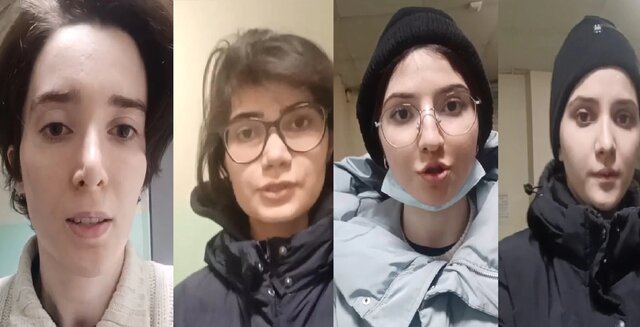The story of four women fleeing from Dagestan to Georgia, or rather the reaction of various media and public figures to it, once again raises a serious question for the Islamic community. First and foremost, of course, is the struggle against challenges and threats such as feminism, LGBT, and the subcultures associated with them. And not just an abstract, ideological struggle, but a specific struggle for Muslim youth, for the children of Muslim parents who are influenced by these ideas.
As we can see, even the “country of unity” cannot do anything about it, despite all the propaganda of “unity”. But let’s be fair – this is not only their problem, it is a global problem, relevant even for the most conservative and religious countries, where the modern information society has taken root with all its temptations.
To be honest, the Islamic movement in the Caucasus and the Volga region, in its current state, is not capable of solving this problem or even seriously addressing it. Even with considerable resources, as can be seen from the example of Turkey, where Muslims are struggling (sometimes not successfully) against this plague. What can we say about the situation in the Caucasus or the Volga region, where Islamic jamaats and the Islamic movement are practically defeated, where the most popular voices are either killed, imprisoned or exiled, and where the muftis lack the necessary personnel, energy and authority to solve such complex problems?
Therefore, we have to acknowledge that we are in a situation where the Islamic movement is defeated and the authorities, who played a role in this with the help or active participation of the muftis, are not able to resist these threats except through bans and repression. So let’s look at the story of the four refugees from this perspective.
Of course, we can be surprised by such disproportionate reactions and blatant double standards in this situation, not only by our open enemies who are deliberately fighting against Islam in the Caucasus, but also by some of our allies who come to the aid of Muslims in difficult times.
For example, why didn’t anyone make such a fuss when the Russian-Georgian border was de facto closed to thousands of Caucasian men fleeing militarization simply because of their nationality? What threatened them was much worse than what threatened these girls. Or, for example, the respected Vladimir Osechkin, who has raised the issue of torture of Muslims in prisons several times, for which we sincerely thank him, decided to hold a whole livestream on this situation. Strange choice, Vladimir – no emergency livestreams were held due to the threat of deportation to guaranteed long-term imprisonment and torture of Amina Gerikhanova, also a woman, but wearing a hijab, not to mention numerous Muslim men. But such attention is paid to a banal domestic conflict.
But we must understand one thing. In such situations, it is not only the ideological war against Islam waged by some, but also the matrix in which many others find themselves, easily manipulated. And this matrix of “oppressed Eastern women,” “medievalism,” “fanaticism,” etc., automatically triggers sympathy for its “victims” in many essentially decent people who, in other situations, could come to the aid of Muslims.
Therefore, the Islamic movement, either driven out of the country or underground (not necessarily active, but hiding “underground”), unable to fully address this problem, must develop its own approach to the information response to such situations.
Of course, we cannot and will not defend those who either seek to destroy the Islamic foundations of Muslim nations and societies or are simply a product of that destruction. On the other hand, we cannot defend their persecutors, if for no other reason than that they are our persecutors as well. And at least some of the people who defend those they persecute will come to our aid in similar situations.
When it comes to the issue itself, we should start by answering the main question – what should the Muslim community do with such elements in modern realities? It is clear that the Muslim community must and will resist the perversions of these people. And this means that it will not provide a comfortable environment for them to live in. But how should such people be dealt with in Muslim societies, especially at a time when Islamic jamaats do not have the opportunity to preach, work with people, explain things, solve their problems, etc.? Should they be subjected to compulsory re-education by the authorities and compliant muftiates, or should they be allowed to move to a place where they feel more comfortable? Obviously, the second option would be better. Unfortunately, if some branches of a tree have withered or been eaten by bark beetles, and there is an opportunity to cut them off to protect the rest of the tree and its roots, then that is what must be done. Moreover, it is not excluded that some of them, when they find themselves in the environment they are seeking, will experience a culture shock and, having the opportunity to interact with living, non-compliant Islamic organizations, will return to Islam or come to it anew.
Therefore, from all perspectives, it makes no sense for Muslim activists to publicly oppose the departure of such individuals from Muslim regions. Nor does it make sense to join solidarity campaigns with them. Of course, one can understand their relatives and loved ones who will try to prevent their departure… As for the long-term approach to this problem, it is the task of Islamic theorists and practitioners, psychologists (normal ones), sociologists, and all others who are capable of contributing to its solution.

